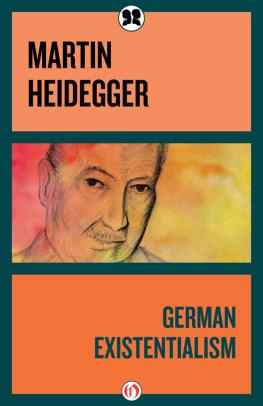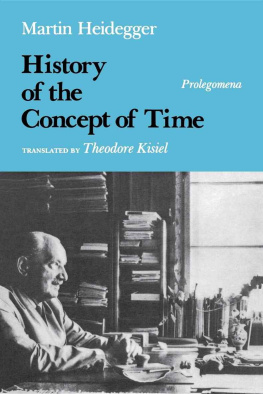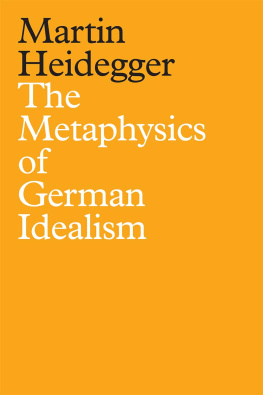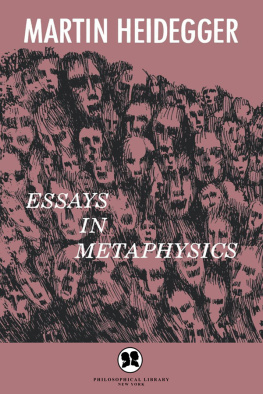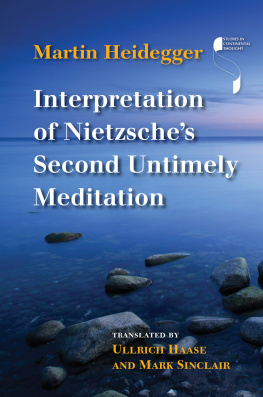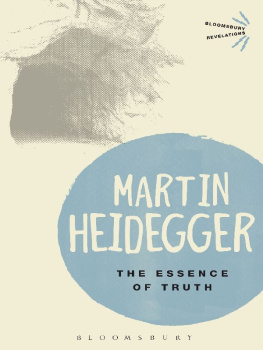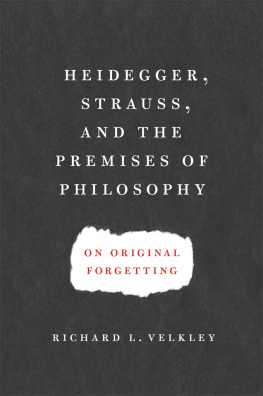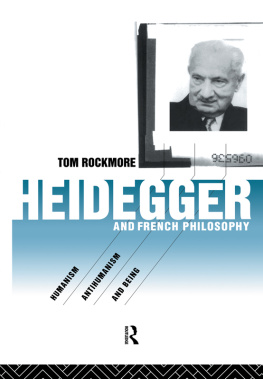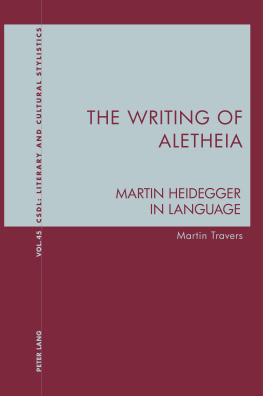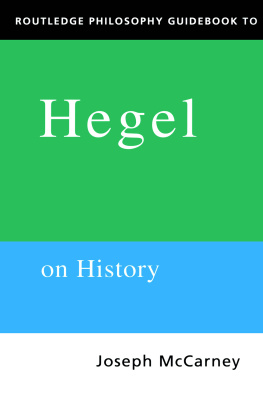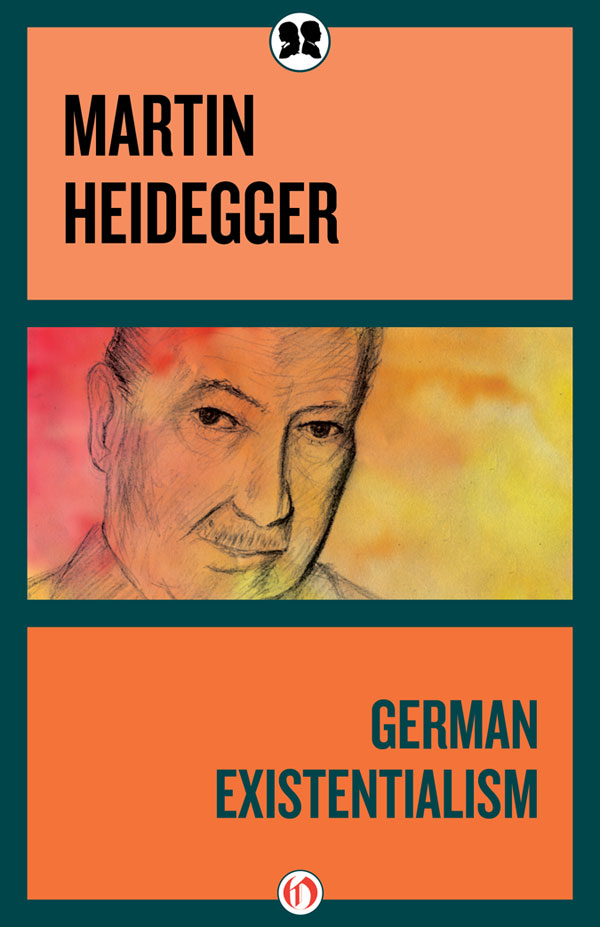THE PHILOSOPHER HEIDEGGER ENTERS THE NAZI PARTY
A German Editorial
On the day of German Labor, on the day of the Community of the People, the Rector of Freiburg University, Dr. Martin Heidegger, made his official entry into the National Socialist Party. We Freiburg Nazis see in this act more than a superficial acknowledgment of the revolution that has been accomplished and of the powers that be. We know that Martin Heidegger, in his high sense of responsibility, in his concern for the destiny and future of the German people, stands in the midst of our glorious movement. We know, too, that he has never made any secret of his German character, that for years he has supported the party of Adolf Hitler in its difficult struggle for existence and power to the utmost of his strength, that he was always ready to bring a sacrifice to Germanys holy altar, and that no National Socialist ever knocked in vain at his door.
We Freiburg people are proud that this profound thinker works at our University, and that he has, in refusing an honorable call, made it clear that he wishes to remain bound to our beautiful home town, which is also his. As National Socialists we find endless satisfaction in the knowledge that this great man stands in our ranks, in Adolf Hitlers ranks. Like our Leader, the philosopher Martin Heidegger sprang, by will power and strength of spirit, from the restricted circles of an insignificant country town to a shining position in the learned world. We shall not be far wrong if we attribute to that origin, to the unconcealed loyalty to his country home, that very strength which enables modern philosophy, in the person of Heidegger, to go beyond the blind spot and lead on to fruitful problems. Starting from the phenomenology of Edmund Husserl, Heidegger has, by the radical nature of his approach, created a completely new situation in modern philosophy. His chief work, Existence and Time, involves a crisis, a turning point, which in its significance and scope can be compared only to the impact of Kantian philosophy upon Occidental thought.
Just as Kant conquered the petrified dichotomy of empiricism and rationalism, because instead of attempting an unfruitful synthesis he pressed on beyond and behind the opposing philosophical positions to the origin, to the original unity behind the dichotomy, so, too, Heidegger by his profundity has drawn the teeth of the modern dichotomy between idealism and realism that has degenerated into a lifeless formalism very far from its origins. He has thereby demonstrated that a theory can never be finished off by critical comparisons, but only by creative thought, whose originator, seen from the point of the too overwhelming contrast, seems by himself and without further aid to be ineffectual. It is a characteristic of our spiritual life that we turn away from the flatness of positivism and naturalism, which present no problems, and turn to the problems of metaphysics that soar even beyond the limits of Kantian criticism.
But whereas this turning toward metaphysics appears in other contemporary thinkers predominantly as a reaction that is a link with pre-Kantian traditions without being ready for Kantianism, in Martin Heidegger it has been creatively realized. His philosophy is far from playing off Aristotle against Kant; insofar as it opens up the old ontology, it can reveal the metaphysical motives of Kantian philosophy and enable the great German thinker to grasp the hidden origins of his philosophizing, not only from outdated theories, but from the living sources.
The effect of Heideggers philosophy is powerful today. Every serious researcher must, whether he rejects it or agrees with it, start from the assumption that it represents the core of modern philosophical thought, and that its creator, Martin Heidegger, is the spiritual leader of contemporary thinking. We are proud of Martin Heidegger; we greet him with all honor. As once Fichte did not deny his spiritual power and authority over the uprising of 1813, so Heidegger has recognized and fulfilled the greatness of our era.
INAUGURATION OF NEW RECTOR
A German News Report
The Alma Mater of Freiburg had its great day today. In the presence of the Minister for Culture, Education and Justice Dr. Wacker, Minister of the Interior Pflaumer, the rectors of the Heidelberg and Karlsruhe colleges, the Mayor, Dr. Kerber, and many guests of honor, the rectorate was formally transferred to the new Rector, Professor of Philosophy Dr. Martin Heidegger.
For the first time the storm troops of Adolf Hitler could appear freely, and the brown ceremonial uniform gave new luster to the impressive scene. The orchestra, directed by Professor Gurlitt, played Brahms Academic Festival Overture, which owes its origin to the honorary degree bestowed on the master by the University of Breslau in 1881. The thematic content combines original melodies with the melodies of well-known songs of both serious and lighthearted character, and concludes with the joyous Gaudeamus Igitur.
The outgoing Rector, Dr. Sauer, gave an overview of the previous semester, which marked the end of a period of superficiality and spiritual pauperization, and the beginning of a movement from which there can be no turning back.
Professor Heidegger made a very important speech on The Self-Assertion of the German Universities.
THE SELF-ASSERTION OF THE GERMAN UNIVERSITIES
A Lecture by Prof. Heidegger
Acceptance of the Rectorate entails an obligation to become the spiritual leader of this noble college. The loyalty of the teaching and student bodies awakes and becomes stronger only if there is a true and common rootedness in the tradition of the German universities. This tradition, however, only attains clarity, prestige and power, when the leaders themselves are guided by the inexorability of that spiritual order that stamps the destiny of the German people with the imprint of its history. It produces true coinage only if we accept the tradition from the very foundations upwards. Some people see the traditionally administrative character of the university in its self-government. Self-government will remain with us, but it is founded upon self-recollection, and exists only in the strength of the self-assertion of the German Universities. This is on the one hand adherence to tradition, on the other hand a drive toward knowledge as a drive toward the historical-spiritual order of the German people.
Knowledge and German destiny must come to power above all in the adherence to tradition, and will do so only when teachers and students alike suspend knowledge as their innermost need, and participate in the destiny of Germany in its most extreme need. If the teachers of the university take their places in the posts of greatest danger in the current world state of uncertainty, they will become masters of leadership. The decisive quality of a leader is his power to continue alone, not out of pride and lust for power, but out of a sense of duty. Strength of this kind confirms that a man has been rightly selected, and wins for him a true following. The German student body is ready and resolved to stand by Germany in her hour of need. And therein adherence to the tradition of the university finds its expression; it is a true expression insofar as the student body, through the new student law, places itself under the law of its tradition. To give oneself a code of laws is itself the highest form of freedom. The much-sung academic freedom will vanish; it was false because it was only negative, implying uncommittedness in thought and act. The concept of the freedom of the German student will be brought back to reality.

